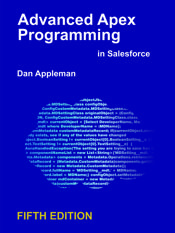Though it’s still April, I’ve already begun to hear people ask the question that is on many minds – will Dreamforce happen this year?
Personally, it’s hard to see how it can, at least in it’s usual form – it’s hard to imagine that in November it will make sense to bring in 170,000 people from all over the world and place them in close proximity (and you know how close people crowd together during Dreamforce). Given the values of Salesforce and our Ohana to not put people’s lives at risk, and the science driven decision making by our state and local governments that is perhaps less susceptible to emotional, irrational and political pressure than seems to be the case with other states, it would take a medical miracle. Such a miracle could happen – we are talking six months from now. But even as we hope for such a miracle, creating some backup plans would seem prudent.
So what might such backup plans look like? I’m sure the folks at Salesforce are asking themselves “how do we translate the Dreamforce experience into a virtual experience?” Along the way, I am sure they will look at best practices from other conferences that have gone virtual.
But I think this is also an opportunity. There is a real need to reinvent virtual conferences beyond a series of video-conferencing calls and webinars. And I think Salesforce is the right company to pioneer this. I’m going to share some thoughts – I doubt they could be implemented by November, but perhaps early steps can be taken.
The challenge with virtual conferences is that we’re all tired of sitting in front of screens and watching things. Besides, a conference isn’t just about watching sessions – it’s about exploring, and connecting with peers, customers and vendors. It’s about engaging – a conference is not a passive activity.
If only there were a way to make a virtual experience that is as engaging – or even more engaging – than a physical conference….
Oh wait – there is one… A virtual experience so engaging that tens, maybe hundreds of millions of people experience it every day. One so compelling that it’s often hard to leave. And one that generates billions of dollars of revenue ever year.
That’s right – we’re talking gaming.
I want you to imagine a virtual Dreamforce built on a rich multiplayer gaming platform. You can wander around the massive halls, checking out booths by Salesforce and exhibitors. The booths might have mini-games you can play, or demos you can watch. More important, avatars of live booth staff – where you can click on them and instantly join a video-conferencing link to speak with them or join an ongoing conversation. There can also be NPCs (non-player characters) – AI based characters that you can interact with (think Einstein powering Einstein).
As you wander around, you’ll see the avatars of other attendees, with their badges easily readable. You can click on them to ask to chat (either in a chat window or with a link to an instant videoconference session). There can be indicators when you pass by friends or others who share your interests.
You can walk over to theater sessions – no need to join a separate webinar, you can watch them in the virtual world directly.
All of these are rich visual and audio experiences – with what you experience depending on where you are walking and what you are looking at – just like in a video game. Imagine what it might evolve to when you add in a VR headset and turn it into a full virtual reality experience!
There can be tie-ins to the real world. Winners of mini-games at an exhibitor booth can be sent real-world swag or prizes. Salesforce can make a deal with delivery services such as DoorDash and GrubHub to let people order Dreamforce specials that include some Dreamforce bonuses or packaging along with the meal delivery.
Of course building such a system would be costly. But it will generate revenue as well. Salesforce can charge exhibitors for booths – both virtual real-estate and design and implementation services. Given a rich experience, Salesforce can charge attendees as well – certainly not the kind of prices that are currently charged for Dreamforce, but would many of us pay, say a hundred dollars, to join a live virtual experience? Absolutely!
Would people want to join a conference that feels like a videogame? Again, Salesforce is already the pioneer in this space – where Trailhead is a fun and gamified education system. What better company to adapt richer gaming technologies to innovating conferences?
Does it really make sense for Salesforce to invest in building out a true virtual conference platform for the sake of Dreamforce? It would take some major investment – probably partnering with or buying a game technology platform. Even making it available to other Salesforce community conferences and road shows probably wouldn’t justify it.
But just as Trailhead became myTrailhead, this could become a new “Conference Cloud” – a platform that Salesforce can sell to others that enables the creation of engaging virtual conference experiences at any scale.
And once the pandemic has passed? Dreamforce will return – but with the addition of a conference cloud, it can become a rich hybrid experience. Not only will people be able to attend who can’t make it to San Francisco, but local attendees can use augmented reality to interact with the physical and virtual conference at the same time.
The vision I’ve shared here isn’t particularly imaginative. There’s little new technology involved – video games do these things already. What’s more – I’m certain what I’m describing here is going to happen someday – the opportunity is too great to ignore. One or more companies are going to build this or something similar. I just happen to think Salesforce would be a great company to tackle it first – if only to add a bit of extra dream into Dreamforce.


Very cool idea Dan! I look forward to attending some of these virtual conferences if they occur. Though I hope they lower the fees from the live conferences. 🙂
-Mike
P.S. One thing about a conference is it allows you to get away from work and FOCUS. Not sure a virtual conference will address that, but if it could somehow that would be super.
This reminds me of an online game I played way back in the day called “The Sims Online”, where you were an avatar speaking with other avatars (friends and strangers). You could visit houses and interact with objects…mini games and so forth. Anyway, it would be great if they could translate that into a conference.